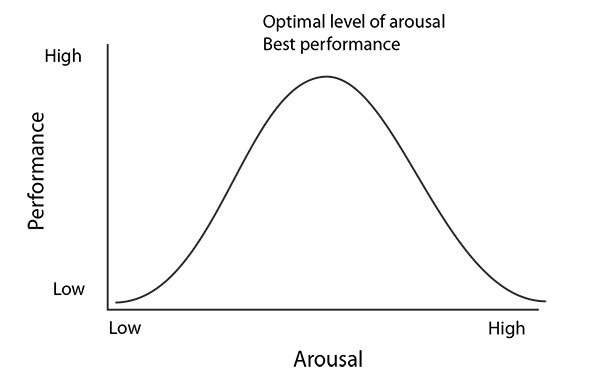Stress Can Make Me Lose My Memory?

Stress is one of the great evils of our time. While there are my strategies to help you reduce it, if you suffer from a lot of stress you may actually suffer from memory loss.
There are two types of stress that can lead to memory loss: acute and chronic. Why does this happen? Because stress has a major impact on memory. This affects both the creation of new memories, as well as their conservation and recall.
On the other hand, well-managed stress has a silver lining. In fact, that’s what the Yerkes-Dodson Law says. This law explains that at controlled levels stress can improve memory and intellectual performance.
It’s what we call in psychology “the inverted U”. If we respond to the demands of the environment with moderate stress our performance improves and memory loss decreases.

The effects of stress on memory are different and depend on whether the stress is acute or chronic.
But what about the acute and chronic stress we mentioned? Are these positive claims all that positive?
Everything depends on the situation and the type of stress we’re dealing with. Next, we will see how we can fit all this into a puzzle that we understand.
Acute stress and memory loss
What do we mean by acute stress? It’s stress that is temporary and intense. It lasts for a limited amount of time. And it won’t last longer than necessary, otherwise we would die.
Let’s say, for example, that we’re at work and an urgent project comes up that cannot wait. We may be stressed due to the amount of work we have. But once we finish it, the stress will disappear.
One of the characteristics of this type of stress is “tunnel vision“. That is, our attention is focused on certain stimuli that is increasing our discomfort. We can’t see the situation with perspective, so the focus turns to stress. However, this type of “vision” is temporary.

“Tunnel vision” isn’t as negative as it may sound, since it helps us consolidate memories. In fact, according to the Yerkes-Dodson Law, this type of stress can improve the creation of new memories, as long as the tension doesn’t get too high.
Students, for example, are sometimes good at taking advantage of this effect, cramming before a test and somehow retaining the information.
Acute or temporary stress only affects memories that are already there, as it has no impact on creating new ones.
But, when these moments of high stress become very frequent or very intense, it stops benefiting your memory and starts harming it. Especially in the formation of new memories and in the consolidation of the old ones.
Chronic stress, the most harmful kind of stress
Chronic stress causes significant changes in memory and can even cause “chronic” damage to the brain. In the case we discussed before, stress could be considered a one-time event.
But, what if this state lasted? For example, if work stress prevents us from sleeping well, if we still can’t enjoy being at home or at a party … Then we may have chronic stress.
When we suffer from acute stress, we feel a very strong state of anxiety that goes away. That is to say, after the stress, calm returns; more or less, but we relax. This does not happen with chronic stress.
In this case we get headaches and other symptoms that can affect our body. The level of stress is not so intense, but the trade-off is that you can’t relax.

This type of stress can have very significant consequences. It can lead to depression, social isolation, inability to have fun … Work, if we are talking about chronic work stress, becomes torture.
We get the feeling of not being able to grow in this environment, we feel stuck and, at the same time, we suffer very severe memory losses.
Chronic stress increases the risk of heart disease.
Although acute stress can be positive sometimes, energizing us, improving our performance and efficiency, it’s important to keep in mind that memory loss can occur.
Likewise, it’s important to know how to differentiate between acute and chronic stress, since the latter needs our full attention: its effects are much harder to see in the short term, but get obvious in the long term.
If it continues, it can not only lead to constant depression and discomfort, but also possibly to dementia later on. Here the memory loss caused by stress is much more serious and more noticeable.
Therefore, let’s try to minimize our daily stress. Let’s try to moderate it and simultaneously work to acquire tools to keep it away.
It’s true that stressful situations are a part of life, but it’s also true that we can make a point to relax or help prevent some of these “natural” stressors.
This text is provided for informational purposes only and does not replace consultation with a professional. If in doubt, consult your specialist.








